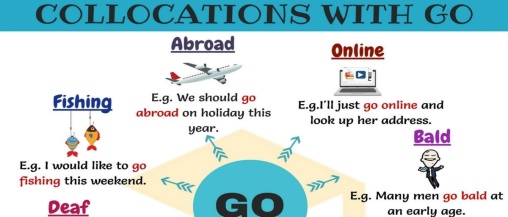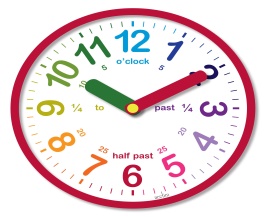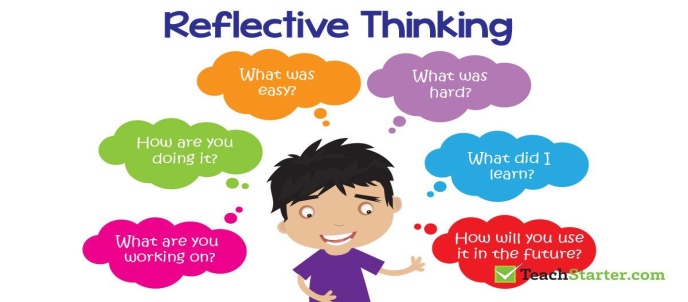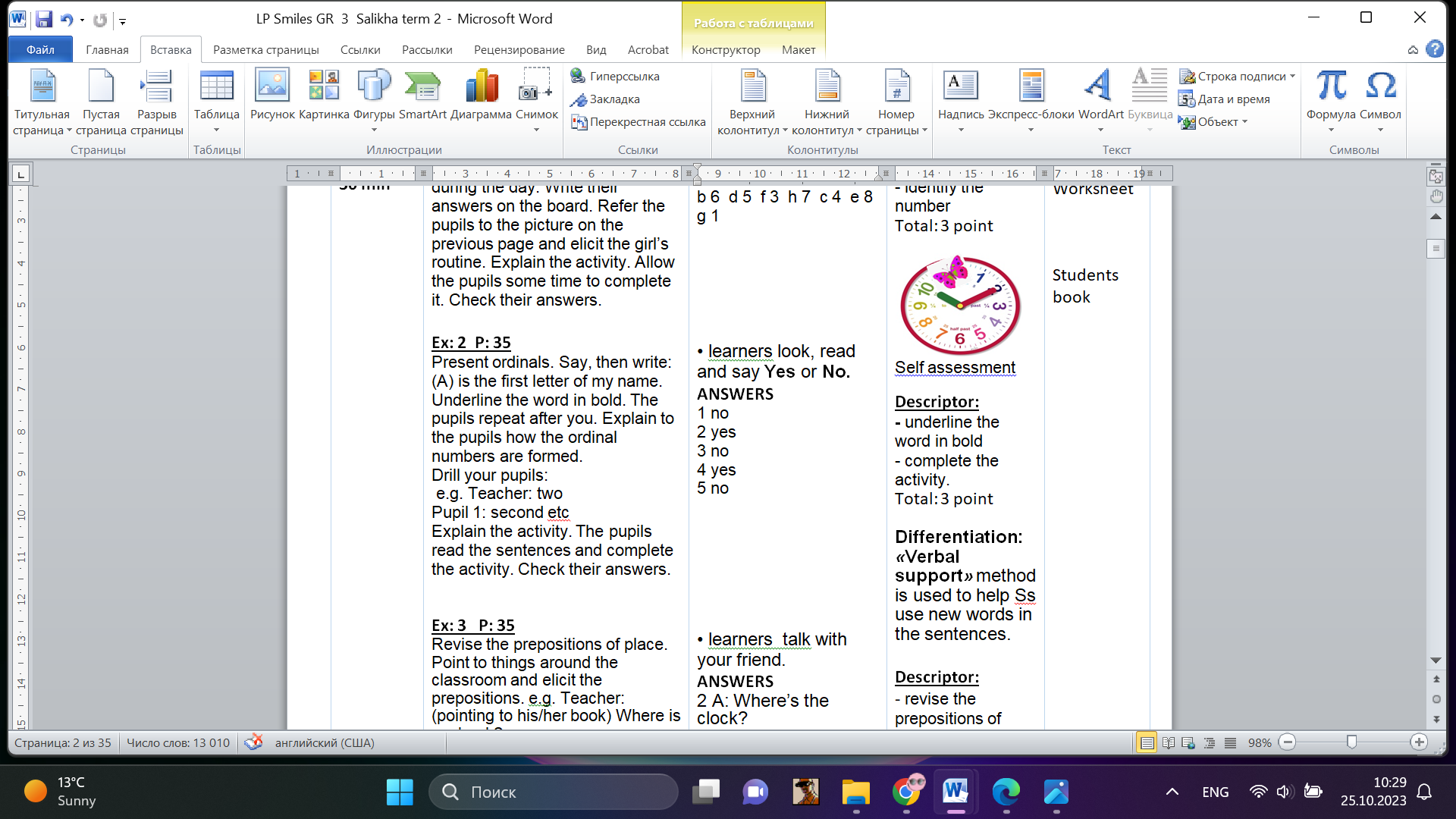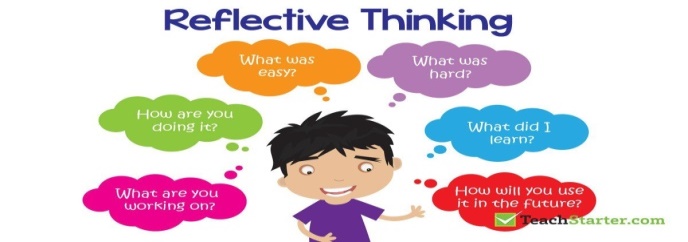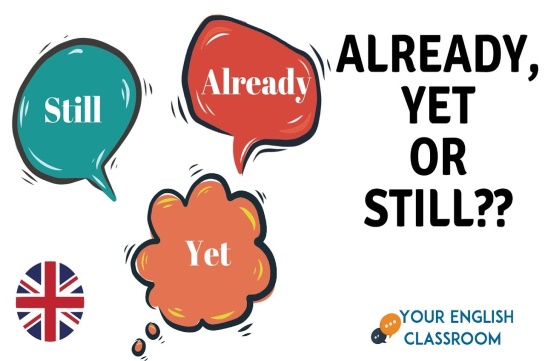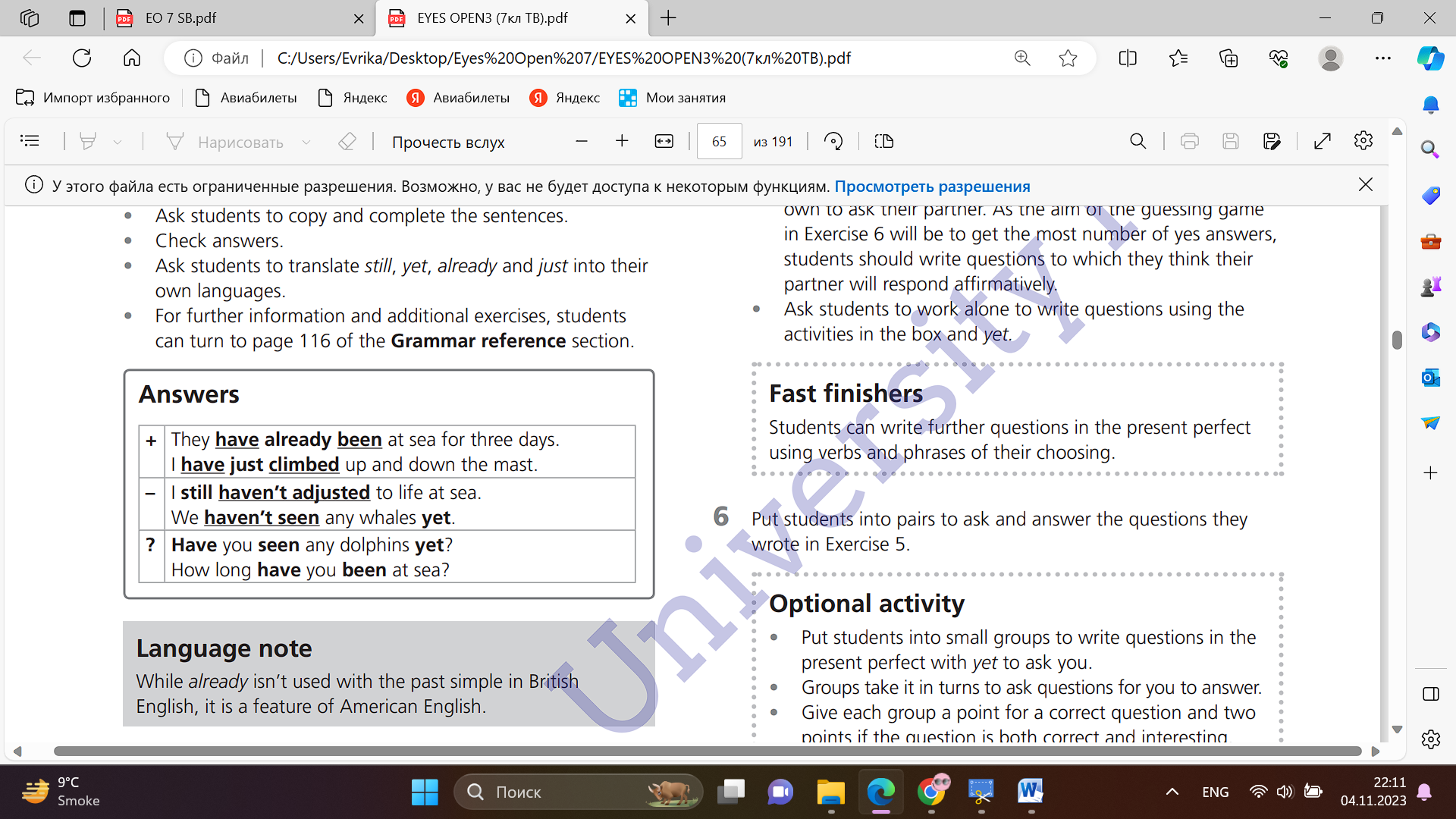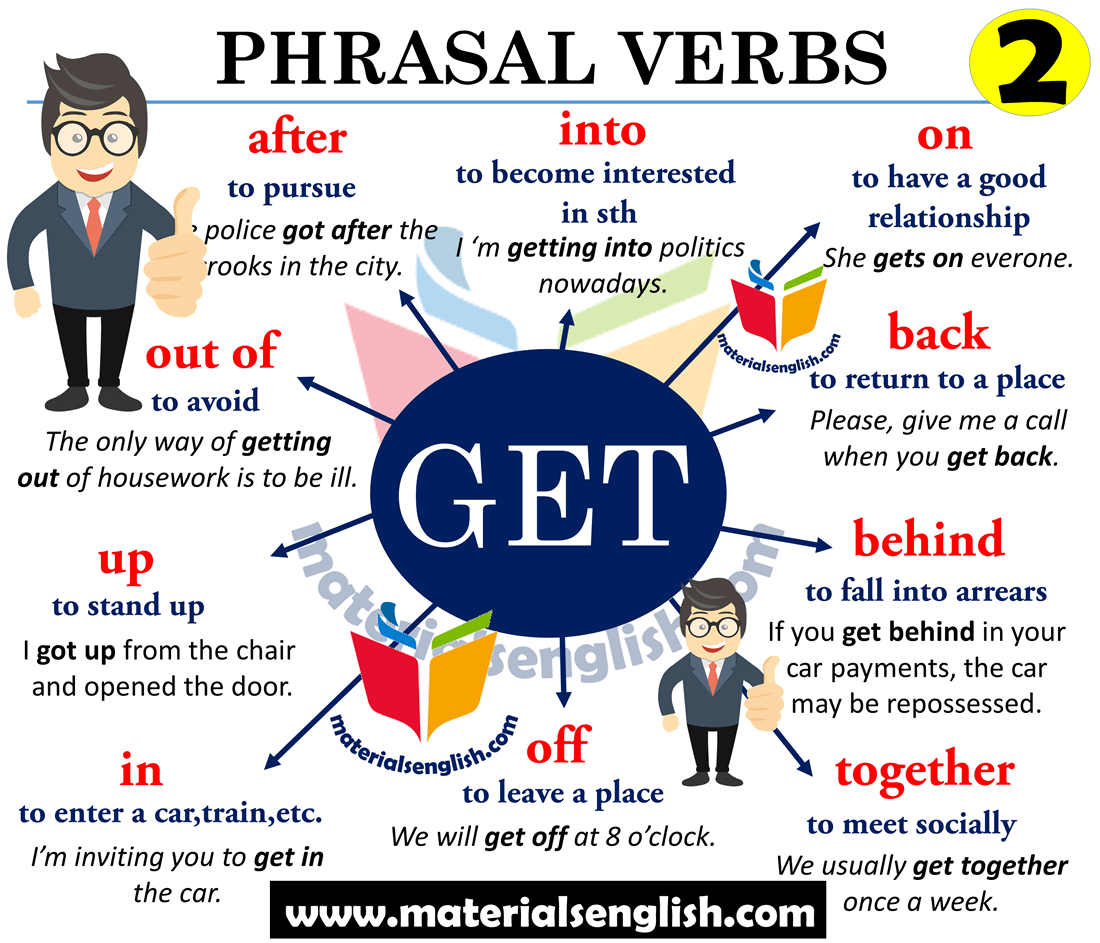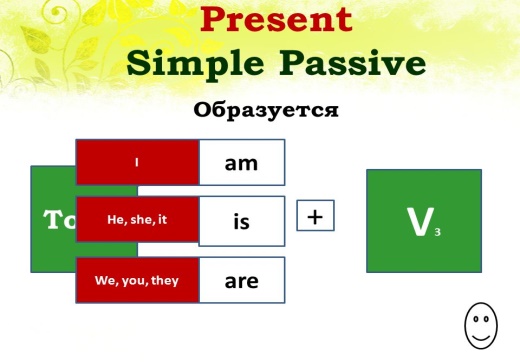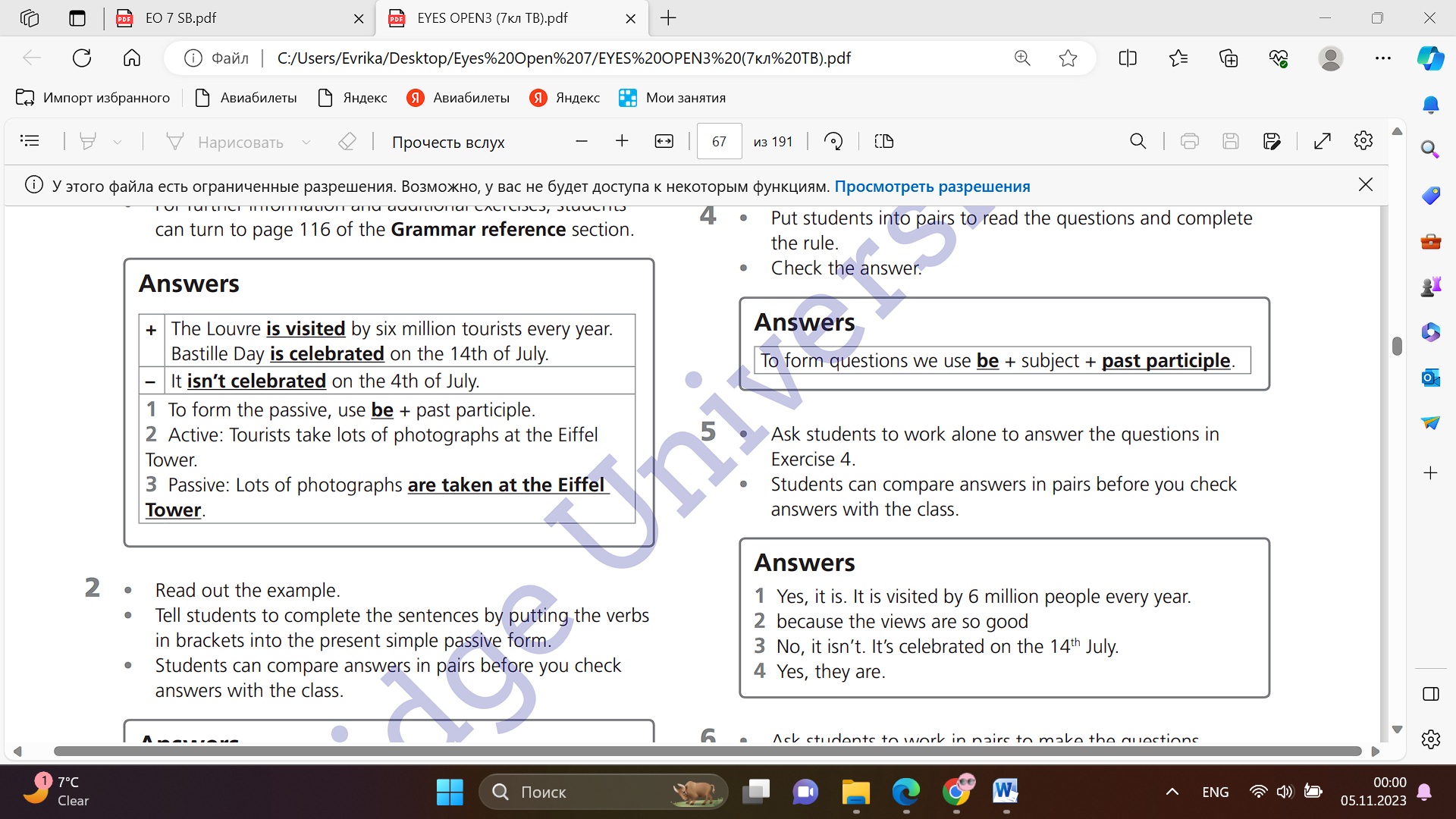Назар аударыңыз. Бұл материалды сайт қолданушысы жариялаған. Егер материал сіздің авторлық құқығыңызды бұзса, осында жазыңыз. Біз ең жылдам уақытта материалды сайттан өшіреміз
Жақын арада сайт әкімшілігі сізбен хабарласады

Бонусты жинап картаңызға (kaspi Gold, Halyk bank) шығарып аласыз

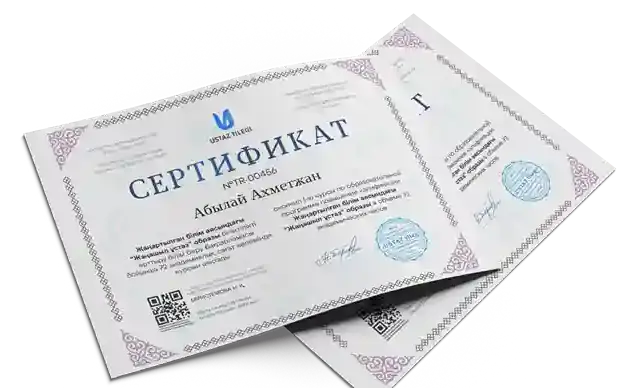
Eyes Open 7 сыныпка арналган КМЖ
Дипломдар мен сертификаттарды алып үлгеріңіз!


Материалдың толық нұсқасын
жүктеп алып көруге болады
Short term plan: term 2
|
Unit: 3 Holidays and travel |
Lesson 25 |
||
|
Teacher name: |
|
||
|
Date: |
|
||
|
Grade: 7 |
Number present: |
absent: |
|
|
Lesson title |
Vocabulary: Expressions with go |
||
|
Learning objectives |
7.1.6.1 organise and present information clearly to others 7.3.3.1 give an opinion at discourse level on a growing range of general and curricular topics 7.3.4.1 respond with some flexibility at both sentence and discourse level to unexpected comments on a growing range of general and curricular topics |
||
|
Lesson objectives |
Learners will be able to: - learn expressions with go. - listen to a conversation about summer trips. - talk about a trip to a summer camp
|
||
|
Value links |
Family – Family values are moral and ethical principles of typical family life, including sacrificing for loved ones, putting your loved ones first, and keeping your loved ones at the centre of your thoughts and actions. |
||
|
Plan |
|||
|
Stages / Time |
Teachers actions |
Students actions |
Assessment criteria |
Resources |
|
Beginning of the lesson Warming-up
3 min. Pre-learning «Brainstorming» method 7 min. |
Organization moment : 1.Greeting. Ask about the weather. The teacher sets the lesson objectives, letting students know what to anticipate from the lesson. Warming up Where are you from? How old are you? What color is it? How many students are there in class? What day of the week today? Hand out the completed Progress Report Cards for the previous module and ask the pupils to file them in their language. Lead – In
|
The aim: To develop pupils speaking skills and create friendly atmosphere Efficiency: By wishing each other they feel better and feel the support of others Students of the class are listed. Students' attention is drawn to the lesson. Students say different words from the picture •Learners remember previous lesson vocabulary •Learners answer the questions What time do you get up every morning? What time do you go to school? What do you do after the lesson? |
The teacher to assess learners for their ability. “Good job! Well done!” Formative Assessment
Good job! Descriptor: - remembers the lesson passed Point 1 Assessment criteria make basic statements related to personal information, people and objects with go. |
Pictures worksheet Picture |
|
Middle of the lesson Presentation part. 30 min |
Ex:1 P:31 • Ask students to open their books at page 31. Focus on the photos and the words and phrases in the box. Put students into pairs to do the matching exercise. Tell students that one of the pictures shows some people pulling on a rope. Explain that the contest in which two teams pull different ends of a rope until one wins by pulling the other over a central line is called tug of war (the verb tug means pull hard.) Play the recording for students to listen, check their answers and repeat the words and phrases. Ex: 2 P: 31 • Tell students they are going to listen to a conversation between Chloe and Ben. Play the recording. Students listen and answer the question.
Ex: 3 P: 31 • Ask students to copy the chart into their notebooks. Play the recording again. Students listen and complete the chart. Check answers. You could elicit further examples of the use of the verb go with sports, activities and places and put them on the board, e.g. go running, go cycling, go on a trip, go on holiday, go to the beach Ex: 4 P: 31 • Read out the three questions. Put students into pairs to answer them. Check answers. Conclusion during the lesson some tasks differentiated by outcomes of the students and by their abilities. |
• Learners match the phrases in the box with the photos ANSWERS b a guided tour c a safari d trekking f summer camp g climbing h skiing i e sailing a theme park • Learners listen to the conversation between Chloe and Ben. ANSWERS Ben: a summer camp in Scotland Chloe: a school exchange in Oxford • Learners listen again and complete the chart with the words ANSWERS go: climbing, trekking, sailing, skiing go on: a school exchange, a guided tour, a safari go to: a theme park • Learners look at the expressions and think about the trips ANSWERS climbing, skiing, sailing, trekking summer camp, a safari, a school exchange a safari, sailing |
Descriptor: - match the phrases with the photos T
Self assessment Differentiation: «Verbal support» method is used to help Ss use new words in the sentences. Descriptor: - listen to the conversation between Chloe and Ben Total: 3 point Descriptor: - look at the expressions and think about the trips Total: 3 point -Make CCQ questions Yes / No |
Card Worksheet Students book |
|
End of the lesson 5 min |
FEEDBACK Learners provide feedback on what they have learned at the lesson. Ex: P: Home task: Write the days |
|
Poster Success
|
|
Short term plan: term 2
|
Unit 3 Holidays and travel |
Lesson 26 |
||
|
Teacher name: |
|
||
|
Date: |
|
||
|
Grade: 7 |
Number present: |
absent: |
|
|
Lesson title |
Reading: an online advertisement |
||
|
Learning objectives |
7.4.2.1 understand specific information and detail in texts on a range of familiar general and curricular topics 7.3.3.1 give an opinion at discourse level on a growing range of general and curricular topics 7.5.2.1 write with minimal support about real and imaginary past events, activities and experiences on a growing range of familiar general topics and some curricular topics |
||
|
Lesson objectives |
Learners will be able to: - read an advertisement about a sailing trip. learn words from the text. talk about when I did something for the first time
|
||
|
Value links |
Loyalty – Loyalty might be a core personal value to you if you highly prize friends that are reliable and trustworthy. You might put your friends or chosen family first, always being there for them when they need you. |
||
|
Plan |
|||
|
Stages / Time |
Teachers actions |
Students actions |
Assessment criteria |
Resources |
|
Beginning of the lesson Warming-up
3 min Pre-learning «Brainstorming» method 7 min. |
Organization moment : 1.Greeting. Ask about the weather. The teacher sets the lesson objectives, letting students know what to anticipate from the lesson. Warming up Where are you from? How old are you? What color is it? How many students are there in class? What day of the week today? Ask a few pupils to stand up and stand in a row. Ask the rest of the class questions to revise the ordinals. Lead – In
|
The aim: To develop pupils speaking skills and create friendly atmosphere Efficiency: By wishing each other they feel better and feel the support of others Students of the class are listed. Students' attention is drawn to the lesson. Determines the topic and purpose of the lesson •Learners remember previous lesson vocabulary Students say different words from the picture Answer the question. |
The teacher to assess learners for their ability. “Good job! Well done!” Formative Assessment
Good job! Descriptor: - know daily routines vocabulary - know prepositions of place Point 1 Assessment criteria - Learners have met the learning objectives if they can talk about online advertisement |
Pictures worksheet Student’s book |
|
Middle of the lesson Presentation part. 30 min |
Ex:1 P:32 • Ask students to open their books at page 32 and look at the photos. Read out the two questions. Elicit answers from the class, but do not confirm or reject any ideas at this stage. Ex: 2 P: 32 • Ask students to read the text to check their answers to Exercise 1. Ex: 3 P: 32 • Ask students to read the text again. Put students into pairs and ask them to find out what the numbers in the box refer to. Check answers with the class and then read out the information in the FACT! box. Ask: Would you like to go a sailing trip with the Tall Ships Youth Trust Ex: 3 P: 32 Ask students to find the first phrase in the reading text. Elicit the matching definition with the class. Put students into pairs to match the remaining words and expressions with the correct definitions, using context to help them. Point out that working out the meaning of new words from their context, rather than simply finding out from a dictionary how the new word translates into your own language, is a very good way of taking a more active role in learning. Pair stronger students with weaker students for this task. Check answers with the class. |
• Pupils look at the photos. Answer the question ANSWERS Student’e own answer. • Pupils read the online advertisement and check your answers ANSWERS They do everything there: take the wheel, cook, clean and keep watch at night. It's a charity adventure holiday. • Pupils read the advertisement again. Answer the question. ANSWERS two or three hundred: The Stavros is an exact copy of the ships that pirates sailed two or three hundred years ago. thousands: Every year thousands of young people get their first taste of the sea. 30: The mast is 30 metres tall. 70 and 200: The Stavros is a 200ft (70 metre) sailing ship. 70: Up to 70% of the young people are disabled or disadvantaged 40: Sandra is on the ship with 40 other young sailors. 15: Emma is 15 years old. Pupils match these words and phrases from the advertisement with the definitions below ANSWERS 1 keep watch 2 a taste of 3 an exact copy 4 cool stuff 5 take it in turns 6 disabled 7 adjuste |
Descriptor: - look at the photos - answer the question Total: 2 point pupils are evaluated by collecting fish
Descriptor: - read the online advertisement Total: 1 point Descriptor: - match these words and phrases from the advertisement Total: 2 point
Self assessment -Make CCQ questions Yes / No Total: 10 point |
Card Worksheet Students book |
|
End of the lesson 5 min |
FEEDBACK Learners provide feedback on what they have learned at the lesson. Ex: P: Home task: Write the days |
|
Poster Success
|
|
Short term plan: term 2
|
Unit 3 Holidays and travel |
Lesson 27 |
||
|
Teacher name: |
|
||
|
Date: |
|
||
|
Grade: 7 |
Number present: |
absent: |
|
|
Lesson title |
Language focus: present perfect with still, yet, already |
||
|
Learning objectives |
7.6.7.1 use a variety of simple perfect forms to express recent, indefinite and unfinished past on a range of familiar general and curricular topics 7.3.7.1 use appropriate subject-specific vocabulary and syntax to talk about a growing range of general topics, and some curricular topics 7.5.5.1 develop with some support coherent arguments supported when necessary by examples and reasons for a limited range of written genres in familiar general and curricular topics |
||
|
Lesson objectives |
Learners will be able to: - learn the present perfect with still, yet, already and just. - practise asking and answering questions using the present perfect and the four adverbs |
||
|
Value links |
Fairness – If you value fairness, you might be highly sensitive to situations at school or in the workplace where a teacher or a peer has exhibited favoritism or allowed someone to get away with living by a different set of rules to everyone else. |
||
|
Plan |
|||
|
Stages / Time |
Teachers actions |
Students actions |
Assessment criteria |
Resources |
|
Beginning of the lesson Warming-up
3 min Pre-learning «Brainstorming» method 7 min. |
Organization moment : 1.Greeting. Ask about the weather. The teacher sets the lesson objectives, letting students know what to anticipate from the lesson. Warming up Where are you from? How old are you? What color is it? How many students are there in class? What day of the week today? revise the vocabulary from the previous Lead – In
|
. The aim: To develop pupils speaking skills and create friendly atmosphere Efficiency: By wishing each other they feel better and feel the support of others Students of the class are listed. Students' attention is drawn to the lesson. • Learners remember previous lesson vocabulary Determines the topic and purpose of the lesson Students say different words from the picture |
The teacher to assess learners for their ability. “Good job! Well done!” Formative Assessment
Good job! Descriptor: - can tell the time Point 1 Assessment criteria - Learners have met the learning objectives if they can talk about persons character |
Pictures worksheet Picture |
|
Middle of the lesson Presentation part. 30 min |
Ex:1 P: 33 • Ask students to open their books at page 33. Tell students that the example sentences are from the text on page 32. Ask students to copy and complete the sentences. Check answers. Ask students to translate still, yet, already and just into their own languages. For further information and additional exercises, students can turn to page 116 of the Grammar reference section Ex: 2 P: 33 • Read out the example sentence in the exercise. Put students into pairs to complete the remaining sentences. Support weaker students by encouraging them to identify the type of sentence they must complete is it a question or a negative? Students should also use the position of the gap in the sentence to help them decide on the right word. Check answers with the class. bride Ex: 3 P: 33 • sk two students to read out the example question and answer Ask students to work alone to complete the dialogues. Check answers. Students can practise reading the dialogues in pairs Ex: 4 P: 33 • Read out the example. Ask students to work in pairs to complete the remaining Pair stronger students with weaker students for this task Play the recording for students to check their answer Conclusion during the lesson some tasks differentiated by outcomes of the students and by their abilities. |
•Pupils complete the examples from the text. ANSWERS
•Pupils look at the chart and complete the sentences using still, yet, already and just. ANSWERS 2 still 3 yet 4 just 5 still 6 yet 7 just 8 already •Pupils use the cues to make dialogues with already, yet and just ANSWERS 2 Has your friend Sam picked up the tickets yet? No, but he's already bought them. 3 Have you decided to take the phone or the tablet yet? Yes, I've just packed it. 4 Has your friend Sam booked a taxi yet? No, but we haven't got the number yet. 5 Have you written down the emergency number yet? Yes, I've just written it on the notepaper. •Pupils complete the text using the words in brackets and the present perfect. ANSWERS 2 still haven't found 3 Have ... spoken yet 4 's just phoned 5 has already lost 6 Have .... given ... yet 7 've already made 8 's just finished |
Descriptor: - complete the examples from the text Total: 1 point
Descriptor: - complete the sentences using still, yet, already and just Total: 1 point
Descriptor: - use the cues to make dialogues with already, yet and just Total: 1 point Descriptor: - complete the text using the words in brackets and the present perfect. Total: 1 point -Make CCQ questions Yes / No
pupils are evaluated by collecting pencils |
Card Worksheet |
|
End of the lesson 5 min |
FEEDBACK Learners provide feedback on what they have learned at the lesson. Ex: Home task: |
|
Poster Success
|
|
Short term plan: term 2
|
Unit 3: Holidays and travel |
Lesson 28 |
||
|
Teacher name: |
|
||
|
Date: |
|
||
|
Grade: 7 |
Number present: |
absent: |
|
|
Lesson title |
Listening: an interview |
||
|
Learning objectives |
7.3.4.1 respond with some flexibility at both sentence and discourse level to unexpected comments on a growing range of general and curricular topics 7.6.7.1 use a variety of simple perfect forms to express recent, indefinite and unfinished past on a range of familiar general and curricular topics |
||
|
Lesson objectives |
Learners will be able to: - listen to teenagers talking about a school trip. - learn phrasal verbs |
||
|
Value links |
Honesty – You may highly value telling people the truth. This one gets tricky when being honest can be hurtful to others. So, a person who really puts honesty first might be the sort of person who will tell the truth even if it hurts to do so. |
||
|
Plan |
|||
|
Stages / Time |
Teachers actions |
Students actions |
Assessment criteria |
Resources |
|
Beginning of the lesson Warming-up
3 min Pre-learning «Brainstorming» method 7 min. |
Organization moment : 1.Greeting. Ask about the weather. The teacher sets the lesson objectives, letting students know what to anticipate from the lesson. Warming up Where are you from? How old are you? What color is it? How many students are there in class? What day of the week today? revise the language from the previous lesson Lead – In
|
The aim: To develop pupils speaking skills and create friendly atmosphere Efficiency: By wishing each other they feel better and feel the support of others Students of the class are listed. Students' attention is drawn to the lesson. • Learners talk about daily routines previous lesson vocabulary Determines the topic and purpose of the lesson Students say different words from the picture |
The teacher to assess learners for their ability. “Good job! Well done!” Formative Assessment
Good job! Descriptor: - talk about daily routines Point 1 Assessment criteria - Learners have met the learning objectives if they can talk about natural features |
Pictures worksheet Student’s book |
|
Middle of the lesson Presentation part. 30 min |
Ex:1 P:34 • Ask students to open their books at page 34. Ask students to brainstorm activities the teenagers in the photo might have done in Paris. Check their ideas. Ex: 2 P: 34 • Tell students they are going to listen to three conversations. Students listen and choose the best summary. Ex: 3 P: 34 • Give students time to read the questions. Play the recording again. Students listen and answer. . Ex: 4 P: 34 • Put students into pairs to do the exercise. Play the recording for students to listen, check their answers, and repeat. Check answers. Read out the Get it right! box Ex: 5 P: 34 Read out the example sentence. Ask students to work alone to complete the sentences. Conclusion during the lesson some tasks differentiated by outcomes of the students and by their abilities. |
•Pupils work with a partner. Look at the photo of some teenagers on a school trip in Paris. ANSWERS Students own answer. •Pupils listen to the conversation. Ask and answer the question. ANSWERS C •Pupils listen again and answer the question. ANSWERS 1 On Tuesday 2 two full days 3 they walked. 4 yes (the Louvre) 5 yes (in a street market) 6 It's OK. They've picked up lots of new expressions. 7 today 8 go to a Vietnamese restaurant (they also wanted to watch the fireworks, but got the day wrong) •Pupils match the phrasal verbs with their synonymous . ANSWERS 1 f 2 d 3 e 4 a 5 b •Pupils complete the sentences with the correct form of the verbs. ANSWERS 2 picked up 3 was looking round 4 come back 5 chill out 6 set of |
Descriptor: - work with a partner - Look at the photo of some teenagers Total: 2 point
Descriptor: - listen to the conversation - ask and answer the question Total: 2 point pupils are evaluated by collecting colour pencils Descriptor: - match the phrasal verbs with their synonymous . Total: 3 point Descriptor: - complete the sentences with the correct form of the verbs. Total: 3 point -Make CCQ questions Yes / No Total: 10 point |
Card Worksheet Students book |
|
End of the lesson 5 min |
FEEDBACK Learners provide feedback on what they have learned at the lesson. Ex: Home task: |
|
Poster Success
|
|
Short term plan: term 2
|
Unit: 3 Holidays and travel |
Lesson 29 |
||
|
Teacher name: |
|
||
|
Date: |
|
||
|
Grade:7 |
Number present: |
absent: |
|
|
Lesson title |
Language focus: Present simple passive |
||
|
Learning objectives |
7.4.2.1 understand specific information and detail in texts on a range of familiar general and curricular topics 7.3.7.1 use appropriate subject-specific vocabulary and syntax to talk about a growing range of general topics, and some curricular topics 7.2.5.1 recognise the opinion of the speakers in supported extended talk on a range of general and curricular topics |
||
|
Lesson objectives |
Learners will be able to: - learn the present simple passive. - learn when to use active voice or passive voice. - learn present simple passive question forms. |
||
|
Value links |
Generosity – This may be a core value of yours if you cherish people who will give their time and resources to people in need. You may consider yourself to be a generous person if you find joy and meaning in giving to others. |
||
|
Plan |
|||
|
Stages / Time |
Teachers actions |
Students actions |
Assessment criteria |
Resources |
|
Beginning of the lesson Warming-up
3 min Pre-learning «Brainstorming» method 7 min. |
Organization moment : 1.Greeting. Ask about the weather. The teacher sets the lesson objectives, letting students know what to anticipate from the lesson. Warming up Where are you from? How old are you? What color is it? How many students are there in class? What day of the week today? Revise the vocabulary from the previous lesson Lead – In
|
The aim: To develop pupils speaking skills and create friendly atmosphere Efficiency: By wishing each other they feel better and feel the support of others Students of the class are listed. Students' attention is drawn to the lesson. • Learners talk about days of the week previous lesson vocabulary Determines the topic and purpose of the lesson Students say different words from the picture |
The teacher to assess learners for their ability. “Good job! Well done!” Formative Assessment
Good job! Descriptor: - talk about days of the we Total: 1 point Assessment criteria - Learners have met the learning objectives if they can talk about your last I holidays. |
Pictures worksheet picture |
|
Middle of the lesson Presentation part. 30 min |
Ex:1 P:35 • Ask students to open their books at page 35. Tell students that the gapped sentences are from the listening on page 34. Put students into pairs to complete the sentences. Check answers. Ex: 2 P: 35 • Read out the example. Tell students to complete the sentences by putting the verbs in brackets into the present simple passive form. Students can compare answers in pairs before you check answers with the class Ex: 3 P: 35 • Refer students to the information in the Get it right! box. Check that students understand that the first pair of sentences are in the passive because neither the Romans nor Budapest do the actions of calling or locating. The second pair of sentences are in the active form because we do not have to refer to the human beings involved in driving trains or opening and closing things, e.g. we say The film starts at 7.00 not The film is started at 7.00 by the assistant. Ask students to read the text and work in pairs to complete it with the correct words. Ex: 4 P: 35 •Put students into pairs to read the questions and complete the rule. Check the answer Ex: 5 P: 35 Ask students to work alone to answer the questions in Exercise 4. Students can compare answers in pairs before you check answers with the class. Conclusion during the lesson some tasks differentiated by outcomes of the students and by their abilities. |
• Pupils complete the examples from the listening. ANSWERS
• Pupils look at the chart. Complete the sentences. Use the passive form of the verbs in brackets. ANSWERS 2 are sold 3 are bought 4are visited 5 is spoken 6 isn't drunk • Pupils choose the correct words to complete the text. ANSWERS 1 move 2 see 3 are made 4 are called 5 show 6 are photographed 7 is touched 8 fall • Pupils look at the questions about the listening and complete the rule. ANSWERS To form questions we use be + subject + past participle • Pupils answer the question about the listening ANSWERS 1 Yes, it is. It is visited by 6 million people every year. 2 because the views are so good 3 No, it isn't. It's celebrated on the 14th July. 4. Yes, they are |
Descriptor: - complete the examples from the listening. Total: 3 point Descriptor: - complete the sentences - use the passive form of the verbs Total: 2 point
Self assessment Descriptor: - choose the correct words Total: 2 point Descriptor: - answer the question about the listening Total: 2 point
pupils are evaluated by collecting fish
-Make CCQ questions Yes / No Total: 10 point |
Card Worksheet Vocabulary card |
|
End of the lesson 5 min |
FEEDBACK Learners provide feedback on what they have learned at the lesson. Ex: Home task: |
|
Poster Success
|
|
Short term plan: term 2
|
Unit 3 Holidays and travel |
Lesson 30 |
||
|
Teacher name: |
|
||
|
Date: |
|
||
|
Grade: 7 |
Number present: |
absent: |
|
|
Lesson title |
Discover culture |
||
|
Learning objectives |
7.2.4.1 understand with little support some of the implied meaning in extended talk on a limited range of general and curricular topics 7.4.1.1 understand the main points in texts on a limited range of unfamiliar general and curricular topics 7.1.8.1 develop intercultural awareness through reading and discussion |
||
|
Lesson objectives |
Learners will be able to: - learn about places, animals and sports in Australia. - talk about whether I would like to go to Australia and wha - landmarks, animals and sports are special to my country. |
||
|
Value links |
Generosity – This may be a core value of yours if you cherish people who will give their time and resources to people in need. You may consider yourself to be a generous person if you find joy and meaning in giving to others. |
||
|
Plan |
|||
|
Stages / Time |
Teachers actions |
Students actions |
Assessment criteria |
Resources |
|
Beginning of the lesson Warming-up
3 min Pre-learning «Brainstorming» method 7 min. |
Organization moment : 1.Greeting. Ask about the weather. The teacher sets the lesson objectives, letting students know what to anticipate from the lesson. Warming up Where are you from? How old are you? What color is it? How many students are there in class? What day of the week today? Revise the language of the previous lesson. Lead – In
|
The aim: To develop pupils speaking skills and create friendly atmosphere Efficiency: By wishing each other they feel better and feel the support of others Students of the class are listed. Students' attention is drawn to the lesson. Determines the topic and purpose of the lesson • Learners talk about favourite dayprevious lesson vocabulary Students say different words from the picture and count one to hundred |
The teacher to assess learners for their ability. “Good job! Well done!” Formative Assessment
Good job! Descriptor: - talk about favourite day Total: 1 point Assessment criteria - Learners have met the learning objectives if they can talk about natural wonders. |
Pictures worksheet Student’s book |
|
Middle of the lesson Presentation part. 30 min |
Ex:1 P:36 • Ask students to open their books at page 36. Students look at the photos and answer the question Ex: 2 P: 36 • Put students into pairs to list images they would expect to see in the video about Australia, e.g. a kangaroo, Ayers Rock Ex: 3 P: 36 • Play the video for students to check the accuracy of predictions they made in Exercise 2. Students also make a note of the images they see related to three categories in Exercise 3. Ex: 4 P: 36 • Play the video again. Students watch and complete the sentences with the correct words. Students can compare answers in pairs before you check Ex: 5 P: 36 Read out the words in the box. Ask students to match them with the things they describe in the video. Conclusion during the lesson some tasks differentiated by outcomes of the students and by their abilities. |
Pupils look at the photos. Answer the question. ANSWERS The photos show the Sydney Opera House, an Australian beach and a koala. Pupils work with a partner. Make a list of other images you might see. ANSWERS Students own answer. Pupils watch video. Make a list of the other things ANSWERS 1 The Sydney Opera House, Uluru 2 camels, toads, kangaroos, koalas, wombats, sheep 3 camel racing, toad races, Australian rules football Pupils watch video again. Complete the sentences with the correct words. ANSWERS 1 rock 2 camels, 1800s 3 kangaroos, koalas 4 Sheep 5 toads 6 rugby Pupils match these adjectives with the things that they describe in the video. ANSWERS 1 famous 2 unusual 3 poisonous 4 confusing |
Descriptor: - look at the photos - answer the question Total: 2 point
Self assessment Descriptor: - work with a partner - make a list of other images Total: 3 point Descriptor: - make a list of the other things Total: 3 point pupils are evaluated by collecting colour pencils
-Make CCQ questions Yes / No Total: 10 point |
Card Worksheet Students book |
|
End of the lesson 5 min |
FEEDBACK Learners provide feedback on what they have learned at the lesson. Ex: Home task: |
|
Poster Success
|
|



